Edie Melson's Blog, page 32
November 27, 2024
First Page Critique
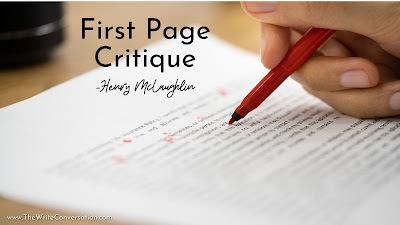
by Henry McLaughlin @Riverbendsagas
Today, I’m sharing the first page of a story from a brave author, who shall remain anonymous. It’s a story about a soldier returning from Vietnam. My critique follows the original.
Berkton, IndianaJune 1970
Leith Fleming stared up at the small-town church building before him, taking in the familiar sight of the peeling blue paint and the tall, white steeple. The double doors were open, and people, dressed up in their Sunday best, streamed in, talking and laughing.
“Whatcha waitin’ for?” Mary asked, and Leith looked over at his wife and grinned.
“Just thinking about how everything’s just as it was before. See? Mrs. Gladford’s even wearing that same yellow dress that makes her look like a duck.”
“Leith!” Mary exclaimed, sounding both appalled and amused.
“Weawy?” Noah asked, his blue eyes going wide. “She’s a duck?”
“Now look what you’ve done, you chump,” Mary scolded. “No, Noah. Mrs. Gladford is not a duck.”
The three-year-old looked disappointed. “Oh.”
Leith just laughed. “Com’on, we’d better hurry, or they’re gonna start without us.” He started forward, ignoring Mary’s muttered comment about how she wasn’t the one wasting time calling people ducks.
But even as they settled in their pew, Leith couldn’t help but feel as if something was... off. He’d expected more of a greeting after being gone for a year, yet only a few people had acknowledged him back
After the sermon, Leith and his family joined the stream of people filing out of the church. There was a picnic, so everyone headed to the long, food-loaded tables set up on the lawn.
Balancing a plate in one hand and a cup of lemonade in the other, he squinted in the bright June afternoon light and scanned the crowd for his family. He quickly spotted them sitting under the sprawling oak, Mary trying to have a conversation with another lady, all while juggling a plate full of food and a restless Noah.
Leith headed over with a grin tugging at his mouth. Carefully setting his food down on the grass, he scooped Noah up and hoisted him with ease onto his shoulders. The boy giggled with glee, wrapping his small hands around the front of Leith’s shirt.
At the sound of Noah’s laugh, Mary looked up. Her gray-blue eyes twinkled at the sight, and a smile lit up her round, pretty face.
My critique:
Berkton, IndianaJune 1970 Good way to anchor us in place and time
This story has a strong beginning. You plant seeds of tension and foreshadowing nicely. A very real part of the culture in 1970s was soldiers weren’t honored or treated with respect. I like the hint of PTSD. Very subtle plant—well done.
The major criticism is I think the writing could be tighter. Some words are unnecessary or redundant.
Leith Fleming stared up at the small-town church building unnecessary word--readers will know it’s a building before him, taking in the familiar sight of redundant after ‘stared’ the tighten peeling blue paint and the tall, white steeple. The double doors were open, and people, dressed up tighten in their Sunday best, streamed in, talking and laughing.
“Whatcha waitin’ for?” Mary asked. and Leith looked over at his wife and grinned.
Keith grinned at his wife. “Just thinking about how everything’s just as it was before. See? Mrs. Gladford’s even wearing that the same yellow dress that makes her look like a duck.”
“Leith!” Mary exclaimed, sounded both appalled and amused.
“Weawy?” this word stopped me before I figured out Noah has a speech impediment— ‘weally’ might fit better Noah asked, his blue eyes going unnecessary wide. “She’s a duck?”
“Now look what you’ve done, you chump,” Mary scolded. “No, Noah. Mrs. Gladford is not a duck.”
The three-year-old looked disappointed. “Oh.”
Leith just ‘just’ is a filler word and usually doesn’t add anything to the story laughed use ‘chuckled’ to break up using ‘laughed’ too often. “Com’on C’mon, we’d better hurry, or they’re gonna start without us.” He started forward, ignoring Mary’s muttered comment about how she wasn’t the one wasting time calling people ducks.
But even tighten As they settled in their pew, Leith couldn’t help but feel as if something feels wordy feeling something was...off. He’d expected more of a greeting after being gone for a year, yet only a few people had passive verbacknowledged him back feels vague his return from the war.
After the sermon, Leith and his family joined the stream used this word earlier flow of people filing out of the church. There was a picnic. Everyone headed to the long, food-loaded tables set up on the lawn.
Balancing a plate in one hand and a cup of lemonade in the other, he squinted in the bright June afternoon light and scanned the crowd for his family. He quickly spotted them sitting under the sprawling oak, Mary trying to have a conversation with another lady, all tighten while juggling a plate full of food and a restless Noah.
Leith headed over with toward them, a suggestion for word flow a grin tugging at his mouth. Carefully setting his food down on the grass, he scooped Noah up and hoisted him Noah with ease onto his shoulders. The boy giggled with gleefeels redundant, wrapping his small hands around the front of Leith’s shirt. Hard to visualize if he’s on his dad’s shoulders wrapping his small hands under his daddy’s chin..
At the sound of Noah’s laugh, Mary looked up. Her gray-blue eyes twinkled, and a smile lit her round, pretty face.
And here is the revised version incorporating my suggestions:
Leith Fleming stared at the small-town church, taking in the peeling blue paint and the tall, white steeple. The double doors were open, and people, dressed in their Sunday best, streamed in, talking and laughing.
“Whatcha waitin’ for?” Mary asked.
Keith grinned at his wife. “Just thinking about how everything’s just as it was. Mrs. Gladford’s even wearing the same yellow dress that makes her look like a duck.”
“Leith!” Mary sounded both appalled and amused.
“Weally?” Noah asked, his blue eyes wide. “She’s a duck?”
“Now look what you’ve done, you chump,” Mary scolded. “No, Noah. Mrs. Gladford is not a duck.”
The three-year-old looked disappointed. “Oh.”
Leith chuckled “C’mon, we’d better hurry, or they’re gonna start without us.” He started forward, ignoring Mary’s muttered comment about how she wasn’t the one wasting time calling people ducks.
As they settled in their pew, Leith couldn’t help feeling something was... off. He’d expected more of a greeting after being gone for a year, yet only a few people acknowledged his return from the war.
After the sermon, Leith and his family joined the flow of people filing out of the church. There was a picnic. Everyone headed to the long, food-loaded tables set up on the lawn.
Balancing a plate in one hand and a cup of lemonade in the other, he squinted in the bright June afternoon light and scanned the crowd for his family. He spotted them sitting under the sprawling oak, Mary trying to have a conversation with another lady, while juggling a plate full of food and a restless Noah.
Leith headed toward them, a grin tugging at his mouth. Carefully setting his food on the grass, he hoisted Noah with ease onto his shoulders. The boy giggled, wrapping his small hands under his daddy’s chin.
At the sound of Noah’s laugh, Mary looked up. Her gray-blue eyes twinkled, and a smile lit her round, pretty face.
What are your thoughts about the changes I suggest? What did I miss? What would you have done differently?
If you’re interested in having a similar critique of your first page, please send it to henry@henrymclaughlin.org. Please include a separate sheet with your name a brief (no more than 3 to 5 sentences) description of what your story is about.
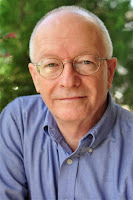 Henry’s debut novel, Journey to Riverbend, won the 2009 Operation First Novel contest.
Henry’s debut novel, Journey to Riverbend, won the 2009 Operation First Novel contest.Henry edits novels, leads critique groups, and teaches at conferences and workshops. He enjoys mentoring and coaching individual writers.
Connect with Henry on his BLOG, TWITTER and FACEBOOK.
November 26, 2024
How to Plan a Writing Break During the Holidays

by DiAnn Mills @DiAnnMills
The holidays are upon us, and excitement is building. We look forward to Thanksgiving, Christmas, and the New Year with family, friend, and church celebrations. Preparations for festive occasions are busy memory makers, but what about our writing deadlines?
Are you thinking ahead and asking yourself if it’s possible to take a break from writing to enjoy the season? Or can you relax your schedule to participate in the many activities? Yes, dear writer, easing off a bit from the workload or taking a break is possible, but the writer needs to organize and plan now.
The following tips will help you complete your writing responsibilities and maximize the enjoyment of your holidays.
5 Suggestions to Plan a Holiday Writing Break
Suggestion number one: Determine due dates for all writing deadlines, including November, December, and the first half of January. By looking at writing projects due the first part of January, the writer isn’t hit by unforeseen surprises. Beginning the New Year in stress mode defeats the benefits of a holiday break.
Suggestion number two: List each project's due date and time for completion. Can you handle the extra work now and maintain quality writing?
Suggestion number three: Examine social media platforms. Are you using a scheduling tool such as Buffer or Hootsuite? Again, this will require time to create posts on your platforms. Perhaps a more relaxed social media schedule is a consideration for you, and you can trim your normal posting frequency. Some writers take a sabbatical during the holidays. Examine your writing responsibilities to see if hiring an author assistant might ease the stress during the holidays.
Suggestion number four: Consider how to best balance work responsibilities with decorating, gift buying, involvement in activities, and commitments with our writing schedule. This is a good choice when some deadlines can’t be manged or completed ahead of time.
Suggestion number five: Refuse to be disillusioned when time doesn’t allow completing everything in your work and personal life. A relaxed schedule still offers opportunities for you to experience all the gatherings vying for your attention. A writer may need to be selective in their festivities. That’s okay. Make the most of what you can do.
The goal of the season is to observe the many friends, family, and church events/activities that make this time of year special. With a little organization and planning, we can take time off without feeling guilt or stress.
Do you have suggestions to ease the stress of holiday business?
TWEETABLEHow to Plan a #Writing Break During the Holidays from @DiAnnMills on @EdieMelson (Click to Tweet)
 DiAnn Mills is a bestselling author who believes her readers should expect an adventure. She creates action-packed, suspense-filled novels to thrill readers. Her titles have appeared on the CBA and ECPA bestseller lists; won two Christy Awards; and been finalists for the RITA, Daphne Du Maurier, Inspirational Readers’ Choice, and Carol award contests.
DiAnn Mills is a bestselling author who believes her readers should expect an adventure. She creates action-packed, suspense-filled novels to thrill readers. Her titles have appeared on the CBA and ECPA bestseller lists; won two Christy Awards; and been finalists for the RITA, Daphne Du Maurier, Inspirational Readers’ Choice, and Carol award contests. She is the former director of the Blue Ridge Mountain Christian Writers Conference, Mountainside Marketing Retreat, and Mountainside Novelist Retreat with social media specialist Edie Melson. Connect here: DiAnnMills.com
November 25, 2024
Dipping the Quill Deeper: A Special Reading
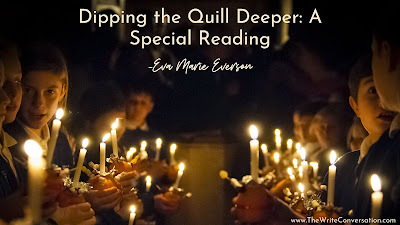
by Eva Marie Everson @Everson_Author
I can’t help it; this time of year, my mind slips back to my childhood, to Christmas tunes playing on Mother’s stereo—Bing Crosby, Frank Sinatra, Andy Williams—the tinsel on our tree dripping from branches like fine strands of lace, the chilly, inviting air outside, the counting down the days until Jolly Ole Saint Nick finally came. Seems to me that for so many years, my baby brother and I wore what we called “footy pajamas.” I can still hear the sound they made as our feet slapped against the hardwood floors of our home. Pitty-pat, pitty-pat, pitty-pat . . .
This time of year also takes me back to my “home church,” the First United Methodist in downtown Sylvania, Georgia . . . to the patina on the pews, the rich, thick carpet, the stained-glass windows. Although, truth be told, I cannot remember exactly when the stained-glass windows depicting the life of Christ were installed. It seems to me they were always there. Similarly, the organ and piano, the curved prayer altar, and the choir loft with its massive oak cross hanging high overhead. This is where we children made our way to one evening during one special year that lives on in my heart. We marched from the vestibule, down the two aisles of the spacious, darkened sanctuary, our white robes billowing around us, our hands carrying flickering white candles. Angels we have heard on high, sweetly singing o’er the plains . . . we sang as if we were announcing the coming King ourselves, just as the angels had done nearly 2000 years before.
Two Wesley Boys
Methodism was the denomination of my childhood; it’s traditions and litanies are a precious part of my spiritual upbringing. And, like any good Methodist, I knew all about the Wesley boys—John (1703-1791) and his younger brother Charles (1707-1788), both leaders of a revival movement within the Church of England known as Methodism.
Now, before this starts sounding like a 7th grade book report, let me explain where I’m going with this post. Most people who know me well know that my favorite devotional book is titled A Guide to Prayer for Ministers and Other Servants. I especially enjoy the devotions and readings set for Advent, the first season of our church year, those blessed days and weeks which leads to Christmas. Within those readings are two from John and Charles and they always stir my heart.
Please allow me to share them with you now, Writer, as we approach our season of remembrance of the Coming Christ-child. I pray they will touch you as they touch me with each and every reading. Sometimes, they both leave me in absolute tears.
I am a creature of a day, passing through life as an arrow through the air. I am a spirit come from God and returning to God; just hovering over the great gulf, till, a few moments hence, I am no more seen; I drop into an unchangeable eternity. I want to know one thing—the way to heaven; how to land safe on that happy shore. God himself has condescended to teach the way, for this very end he came from heaven. He hath written it down in a book. O give me that book! At any price, give me the book of God! I have it; here is knowledge enough for me. Let me be homo unius libri.* (John Wesley)
~~~
Come, thou long-expected Jesus,Born to set thy people free;From our fears and sins release us;Let us find our rest in thee.Israel’s strength and consolation,Hope of all the earth thou art;Dear desire of every nation,Joy of every longing heart.
Born thy people to deliver,Born a child and yet a King,Born to reign in us forever,Now thy gracious kingdom bring.By thine own eternal spiritRule in all our hearts alone,By thine all sufficient merit,Raise us to thy glorious throne. Amen.(Charles Wesley)
Merry Christmas, Writer . . . Merry, blessed Christmas, friend. Eva Marie Everson
TWEETABLEDipping the Quill Deeper: A Special Reading from author @Everson_Author on @EdieMelson (Click to Tweet)
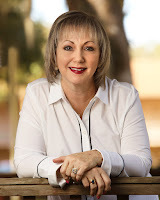 Eva Marie Everson is the CEO of Word Weavers International, the director of Florida Christian Writers Conference, and the Director of Contests for Blue Ridge Mountain Christian Writers Conference. Her latest work, Ahoti: A Story of Tamar, co-written with Israeli bestselling author Miriam Feinberg Vamosh, released May 14, 2024 (Paraclete Press/Raven Fiction). For more information about Eva Marie, go to www.EvaMarieEversonAuthor.com.
Eva Marie Everson is the CEO of Word Weavers International, the director of Florida Christian Writers Conference, and the Director of Contests for Blue Ridge Mountain Christian Writers Conference. Her latest work, Ahoti: A Story of Tamar, co-written with Israeli bestselling author Miriam Feinberg Vamosh, released May 14, 2024 (Paraclete Press/Raven Fiction). For more information about Eva Marie, go to www.EvaMarieEversonAuthor.com.*A man of one book.
November 24, 2024
Newsletters: A Writer's Best Marketing Tool

by Ane Mulligan @AneMulligan
Newsletters are touted as a writers best marketing tool. Why? Because the people who sign up to receive your newsletter are fans. They like your books. Especially with today's rules and regs about newsletters, your followers have to jump through a hoop or two to get on your subscriber list.
Before we go any further, We need to make clear that you should use a newsletter service. If you create a list of emails and send your newsletter to those people without using a service, that is no longer legal. It doesn't allow for unsubscribing. Be sure you're compliant. There are many services that are free for up to about 1,500-2,000 subscribers.
How do you find subscribers?
After my first book was published, I carried a subscriber list to book signings and talks. I laid it on the table with my books. It stated clearly how often I would send out a newsletter.
But gathering subscribers that ways is slow. Then a critique partner told me about Ryan Zee and his "list builder" campaigns. She told me the price and how many subscriber she got from it. I took her word and paid the $65. I got over 860 subscribers and have retained about 820 of them. That was a good deal.
The way a list builder campaign works is several authors (usually about 30-40 per campaign) pitch in a free e-book for the winner and runner up. Then the person sponsoring the campaign sends you promo graphics to promote the campaign. The winner gets a new e-reader plus all the e-books from the authors.
When readers enter, they have to choose whose newsletters they'd like to receive. When the contest is over, the sponsor sends you a spreadsheet with the names and email addresses of those who chose to get your newsletter.
How often is too often?
I get a lot of newsletters from author friends. Some are weekly, some monthly, and some quarterly. I decided to do a quarterly newsletter, and to be honest, sometimes it's gone to six months between. I don't think anyone minds the lapse.
If you find people unsubscribing from your weekly newsletter, you might want to try a monthly one. Unless you load your with such interesting tidbits, your readers can't wait for the next one, then I'd suggest less is more.
What to Put in Your Author Newsletter
So, your list is building. You've figured out how often to send your newsletter. Now, the big question: what do you put in it? This is the hardest part for me. I didn't have a standard format I followed, but now I've made one up.
Any upcoming release. Start six months out if you do a quarterly newsletter; two months out if a monthly one. You want to create a buzz about your upcoming release. Promote pre-orders. They create interest and will help your Amazon sales ranking skyrocket on release day.
New release. Play up your new release. Perhaps give your subscribers a scene that was cut from the book, or perhaps a little backstory about the characters. Always give subscribers something nobody else gets.
What you're up to. My subscribers know I'm involved in Community Theatre. So I include a tidbit from rehearsals, a photo, and any funny story that arises from a show.
Book signings & talks. If you do a lot of speaking, include a calendar or at least a list of where and when you'll be talking or doing a book signing. Subscribers in your area love to come see their favorite authors.
Hobbies. Are you a knitter? Debbie Macomber has created an entire Bestseller ranking from knitters. Another friend is an amateur genealogist. Her debut book's heroine who is a genealogist. Her newsletter includes tips on finding your ancestors.
Recipes. Newsletter readers love to get recipes. I always include a recipe or two in the back of all my books. So I include a recipe new to me. I usually take a photo of it to put on Facebook, so I add that to the newsletter.
Books on my nightstand. If I don't have a new release or upcoming one, I will share the books I'm reading, and maybe a review of one of my critique partner’s or friend's books.
That should give you an overview on newsletters. And if I missed anything, please comment and let me know!
TWEETABLENewsletters: A Writer's Best Marketing Tool from @AneMulligan on @EdieMelson (Click to Tweet)
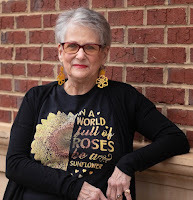 Ane Mulligan lives life from a director’s chair, both in theatre and at her desk creating novels. Entranced with story by age three, at five she saw PETER PAN onstage and was struck with a fever from which she never recovered—stage fever. One day, her passions collided, and an award-winning, bestselling novelist emerged. She believes chocolate and coffee are two of the four major food groups and lives in Sugar Hill, GA, with her artist husband and a rascally Rottweiler. Find Ane on her website, Amazon Author page, Facebook, Instagram, Pinterest, The Write Conversation, and Blue Ridge Conference Blog.
Ane Mulligan lives life from a director’s chair, both in theatre and at her desk creating novels. Entranced with story by age three, at five she saw PETER PAN onstage and was struck with a fever from which she never recovered—stage fever. One day, her passions collided, and an award-winning, bestselling novelist emerged. She believes chocolate and coffee are two of the four major food groups and lives in Sugar Hill, GA, with her artist husband and a rascally Rottweiler. Find Ane on her website, Amazon Author page, Facebook, Instagram, Pinterest, The Write Conversation, and Blue Ridge Conference Blog.
November 23, 2024
10 Foundational Truths to Help Us Remain Steadfast as Writers in the Year to Come

by Edie Melson @EdieMelson
We're coming into a busy season—joyful for the most part—but busy. I use this time to stay engaged with readers, but also to evaluate where I've been this year and how I want to continue into next year. Here are some of the things I've discovered.
Despite news to the contrary, I believe this is the best time ever to be a writer. Writing for a living isn’t a get rich quick scheme, but it is possible to make a reasonable income. Becoming a professional writer takes hard work. But if we’re willing to learn the industry and the craft of writing, we can find success. Today I’m going to share my tips that will help you find that success.
10 Foundational Truths to Keep Us Strong Writers1. We must realize that it’s a journey and not a destination. This industry is constantly changing. There’s new technology to keep up with, new trends, and even new grammar rules. We do get more experienced, but we never arrive at the point where we know everything.2. We need to be ready to make writing a priority. As I said, in the early stages of becoming a professional writer, we do a good bit of writing for free. Because we’re not getting paid, it’s tempting to think what we’re ding isn’t valuable. We let other requests and commitments get in the way.3. We must invest in learning. This means we commit to spending time reading books and blogs. We also need to invest in classes, workshops, and conferences.4. We shouldn’t expect to get paid for everything we write. I don’t recommend working only for free, but in the beginning, it’s the way we prove our ability and gain valuable experience. Think of it as unpaid internships. Here are two posts that help set reasonable guidelines:Why Professional Writers Should Write for Free, Part 1Why Professional Writers Should Write for Free, Part 25. We have to recognize that learning to write is just part of the equation. Just like any other profession, the publishing industry has a specific way of doing things. It’s important to learn how things are done and the standards that are expected from industry professionals.6. We must not neglect networking. Networking is vital in the publishing industry. We get to know editors and agents because they may one day buy and sell our works. We build relationships with other writers because we need the support and encouragement of those who know our struggles and our joys. Beyond that, other writers are a valuable resource for publishing leads.7. We cannot rely on talent to get us where we want to go. Talent CAN be a starting point, but it isn’t the most necessary component of a successful writer. Diligence, determination, humility, and a teachable heart are things that will get you where you want to go.8. We have to have the courage to try new things. To earn a viable income as a professional writer, we’ll have to step outside our comfort zone. We’ll need multiple income streams and be willing to change as the industry changes.9. Learning new technology is mandatory. Technology isn’t an enemy, it’s a tool. And it’s one that we must each learn to use.10. The path to success is different for each of us. Falling into the comparison trap can be fatal. Becoming a professional writer takes time and hard work, but there’s no magic formula.
These are the things that I believe can put you on the road to becoming a professional writer. Many of you out there also have some valuable insights. I’d love you to share your thoughts in the comments section below.
TWEETABLE10 Foundational Truths to Help Us Remain Steadfast as Writers in the Year to Com from @EdieMelson (Click to Tweet)
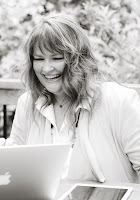 Edie Melson is a woman of faith with ink-stained fingers observing life through the lens of her camera. No matter whether she’s talking to writers, entrepreneurs, or readers, her first advice is always “Find your voice, live your story.” As an author, blogger, and speaker she’s encouraged and challenged audiences across the country and around the world. Her numerous books reflect her passion to help others develop the strength of their God-given gifts and apply them to their lives.Connect with her on her website, through Facebook, Twitter and on Instagram.
Edie Melson is a woman of faith with ink-stained fingers observing life through the lens of her camera. No matter whether she’s talking to writers, entrepreneurs, or readers, her first advice is always “Find your voice, live your story.” As an author, blogger, and speaker she’s encouraged and challenged audiences across the country and around the world. Her numerous books reflect her passion to help others develop the strength of their God-given gifts and apply them to their lives.Connect with her on her website, through Facebook, Twitter and on Instagram.
November 22, 2024
Three Most Common Limiting Beliefs of Writers (and How to Overcome Them)

by Zena Dell Lowe @ZenaDellLowe
As an aspiring writer, you've likely encountered a few common misconceptions that might be holding you back. Today, I'm here to dispel the 3 most common limiting beliefs that writers have, and help you see how achieving your career goals may be simpler than you think.
Limiting Belief #1: It's Too Complex to Succeed as a Writer.
Reality: Many aspiring writers believe that the publishing industry is too complex and competitive for them to navigate. There's too much competition. Too much "noise." It's impossible for good work to be "seen."
Overcoming it: While the industry is undoubtedly challenging, the key is to break down your journey into manageable steps. Rather than trying to conquer the entire industry at once, focus on learning and mastering one aspect at a time. Start by honing your storytelling skills, understanding story structure, and networking within the industry. Each small step brings you closer to your ultimate goal, making success more attainable.
Limiting Belief #2: I Need a Breakthrough Idea to Succeed.
Reality: Some writers believe they need a groundbreaking, ultra-unique idea to succeed, which can paralyze their creativity and prevent them from even starting.
Overcoming it: Successful writers often build their careers by working on well-executed, familiar storylines. Instead of obsessing over a one-in-a-million idea, focus on telling stories that resonate with audiences emotionally. It's not always about having the most unique concept; it's about how you execute and present your story that matters most.
Limiting Belief #3: The Industry is All About Luck and Connections.
Reality: Many believe that the publishing industry is solely about luck and connections, and they don't have a chance without the right connections or a lucky break.
Overcoming it: While connections and luck can play a role, they aren't the only factors in success. Building connections and seizing opportunities can be proactive steps. Networking, attending industry events, and entering competitions can help you create those connections. Additionally, it's essential to remember that hard work, dedication, and skill are just as, if not more, important than luck.
Simplifying Success for Storytellers:
The journey to becoming a successful writer can indeed be simpler than it seems.1. Focus on Craft: Instead of feeling overwhelmed by the industry, concentrate on improving your craft. Learn the art of storytelling, understand and execute a solid three-act structure, and continuously practice. Mastery of these fundamental skills can set you on the path to success.2. Consistency Matters: Success often comes to those who consistently write and revise. Commit to a routine, write regularly, and revise your work. Consistency in your efforts can lead to incremental improvements and better stories.3. Embrace Learning: The publishing industry is constantly evolving. Be open to learning and adapting. Stay updated with industry trends, new technologies, and changes in storytelling techniques. Continuous learning can give you a competitive edge.4. Seek Feedback: Don't be afraid to receive constructive criticism. Feedback from mentors, peers, or industry professionals can help you grow as a writer.5. Network Actively: Building connections in the industry is crucial. Attend events and conferences, participate in workshops, and engage with fellow writers and industry insiders. These connections can open doors and create opportunities.
While the path to success in writing might seem daunting, it's essential to overcome limiting beliefs, focus on your craft, and actively pursue opportunities within the industry. With dedication, consistent effort, and a willingness to learn, achieving your goals as a writer can be simpler and more achievable than ever.
Remember, the path to success involves acquiring the right skills and knowledge to become a master craftsman. If you aspire to build a fulfilling career as a writer, the number one thing you can do right now is sign up for my online course, Hollywood Story Structure Made Easy.
If there’s one thing Hollywood knows, it’s how to craft an amazing story. Learn from the greats and start applying Hollywood’s secrets to your own work.
In honor of Black Friday, this course is now on sale for only $397 when you sign up today. This is its lowest available price. Go to my website at www.thestorytellersmission.com and click on BLACK FRIDAY SALE.
Don't let myths hold you back. You have the potential to transform your writing dreams into reality. Join us on this journey and discover the simplicity of success.
P.S. Remember, this offer is only good through Cyber Monday. After that, it goes away. Don't miss this limited time opportunity to change your life! www.thestorytellersmission.com
TWEETABLEThree Most Common Limiting Beliefs of Writers (and How to Overcome Them) - @ZenaDellLowe on @EdieMelson (Click to Tweet)
 Zena has worked professionally in the entertainment industry for over 20 years as a writer, producer, director, actress, and story consultant. Zena also teaches advanced classes on writing all over the country. As a writer, Zena has won numerous awards for her work. She also has several feature film projects in development through her independent production company, Mission Ranch Films. In addition to her work as a filmmaker, Zena launched The Storyteller’s Mission with Zena Dell Lowe, a podcast designed to serve the whole artist, not just focus on craft. In 2021, Zena launched The Storyteller’s Mission Online Platform, where she offers advanced classes and other key services to writers. Zena loves story and loves to support storytellers. Her passion is to equip artists of all levels to achieve excellence at their craft, so that they will truly have everything they need to change the world for the better through story.
Zena has worked professionally in the entertainment industry for over 20 years as a writer, producer, director, actress, and story consultant. Zena also teaches advanced classes on writing all over the country. As a writer, Zena has won numerous awards for her work. She also has several feature film projects in development through her independent production company, Mission Ranch Films. In addition to her work as a filmmaker, Zena launched The Storyteller’s Mission with Zena Dell Lowe, a podcast designed to serve the whole artist, not just focus on craft. In 2021, Zena launched The Storyteller’s Mission Online Platform, where she offers advanced classes and other key services to writers. Zena loves story and loves to support storytellers. Her passion is to equip artists of all levels to achieve excellence at their craft, so that they will truly have everything they need to change the world for the better through story.To find out more about Zena or her current courses and projects, check out her websites at WWW.MISSIONRANCHFILMS.COM and WWW.THESTORYTELLERSMISSION.C
November 21, 2024
5 Random Writing Tips to Make Your Writing Life More Efficient

by Lori Hatcher
Wouldn’t you love to write more efficiently?
I would.
Frankly, I’d like to do all of life more efficiently. Have you ever clicked on a social media post promising “10 Kitchen Tips to Save Time”? Twenty minutes later, you’re mourning the fact that you wasted those twenty minutes reading that article. Other times, you actually learn something. (Who knew you could use toothpaste to clean your foggy headlights?)
I promise I won’t waste your time. Today I’m sharing five random tips that will make your writing life more efficient.
5 Ways to Make Your Writing More Efficient
Random Tip #1: You can try the latest editing softward for free.
Have you heard about editGPT? For writers or editors who pay to use Grammarly or ProWritingAid (which now include or offer AI features), you might want to try it—for free. Thanks, Jane Friedman for sharing this.
Random Tip #2: Don’t submit until you do a First Lines test.
Jesse Floria taught me this at Florida Christian Writers Conference, and I’ve added it to my pre-submission checklist. After I check grammar, punctuation, and spelling, I read the first line of each devotion or chapter aloud and ask, “Does this make me want to read on?” If the answer is no, rewrite it.
Random Tip #3: Gather permissions as you go.
If you include other people’s names or stories in your WIP, your publisher will ask you for permission forms. Do yourself a favor—gather them as you go, rather than scrambling a year or more later to track down and contact the people you mention in your book. If you can’t find them or they won’t grant you permission, it’s better to find out now so you can adapt your material.
Random Tip #4: Cite your sources as you go.
You’re reading an amazing devotional and a quote from the author resonates with you. It sparks an idea for a chapter in your WIP, and you use the quote as your hook. A year (or more) later, your editor asks you to cite your source. What was the name of that book? And what page was the quote on? To avoid spending hours combing through your bookshelf and thumbing through your books, capture all relevant information as you write. Then, when your editor asks for it, you’ll be ready.
Random Tip #5: Print your WIP and use both sides of the paper.
As a writer and freelance editor, I always print a hard copy of the manuscript I’m working on for one last edit before I submit it. Don’t skip this step. I’m always shocked at the errors I see in print that I miss on a computer screen. If you’re hesitant to waste paper, print on both sides (There’s setting on your Print Preview screen). If you’re worried about wasting ink, as Steven James said, “It’s not wasteful. It’s a tool of your trade.”
If you’ve been writing for more than a week, you’ve discovered a few random tips of your own. Share them in the comment box below and join the conversation. If we can save someone else a few minutes, a few dollars, or a few brain cells, let’s do it!
TWEETABLE5 Random Writing Tips to Make Your #Writing Life More Efficient from Lori Hatcher on @EdieMelson (Click to Tweet)
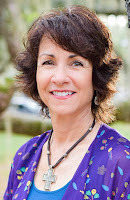 Lori Hatcher is a writing instructor, freelance editor, and author of six devotional books with Our Daily Bread Publishing. She loves to share tips and tricks that make authors’ lives easier with local writers groups and at conferences. One of her favorite workshops is “20 Writing Life Hacks, How to Write Better, Faster, Smarter.” Connect with her next at Carolina Christian Writers Conference and Blue Ridge Mountains Christian Writers Conference.
Lori Hatcher is a writing instructor, freelance editor, and author of six devotional books with Our Daily Bread Publishing. She loves to share tips and tricks that make authors’ lives easier with local writers groups and at conferences. One of her favorite workshops is “20 Writing Life Hacks, How to Write Better, Faster, Smarter.” Connect with her next at Carolina Christian Writers Conference and Blue Ridge Mountains Christian Writers Conference.
November 20, 2024
Navigating NRB: An Author's Guide to Landing Media Coverage
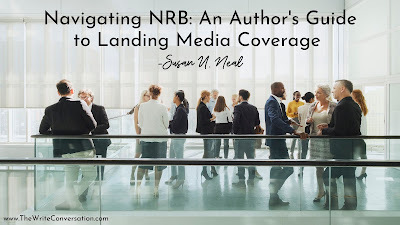
by Susan U. Neal RN, MBA, MHS @SusanNealYoga
As I wheeled my suitcase through the gleaming lobby of the Gaylord Resort, the energy was palpable. With my newest book tucked safely in my bag, I felt equal parts excitement and nervousness. The National Religious Broadcasters (NRB) Convention, a cornerstone event for Christian media professionals, was about to begin.
As an author seeking to expand my platform and connect with media for potential interviewees, I knew these next few days represented a golden opportunity for me. There were thousands of media professionals under one roof, all potentially interested in featuring new books and fresh voices on their platforms.
Why NRB?
The NRB Convention isn't just another industry meetup—It's where Christian media's most influential voices gather to shape the future of faith-based communication. With over 3,500 attendees representing radio, television, digital media, and publishing, it's a goldmine for media to find captivating stories and meaningful connections. As Christian authors, we can fill those interview slots.
The convention floor buzzed with activity. Radio stations had set up remote broadcasting booths, podcasters conducted live interviews, and television networks conducted live interviews right at the hotel. For an author this meant I had access to industry professionals who could provide me with outlets to tell my story.
Making the Most of Media Opportunities
To make connections with media, you need the media list, but NRB only gives that list to booths who pay thousands of dollars. Therefore, I attended the show with the Christian Authors Network , so I got a list of all the media attending the show.
I quickly learned that preparation was key. Before arriving I:Researched attending media and chose the ones who resonated with my brandEmailed the respective media Prepared a media kit about my healthy living series of books (to learn the 10 Essential Ingredients You Should Include in Your Media Kit click HERE )Created a list of potential interview questionsBought a new pair of walking shoes, as I knew there would be lots of ground to cover
The convention's Media Room was where podcasters and other online platforms set up temporary studios for live broadcasting throughout the event. I learned quickly that many hosts welcome impromptu interviews with authors, especially if you have an interesting hook for their audience.
I'd scheduled several interviews in advance. Most were during NRB and a couple thereafter. But some of my best media opportunities came unexpectedly. Months after NRB, several television stations who had received my media kit contacted me. I got four television shows from these contacts. I felt as though I had finally arrived as an author, and it was due to attending this premier trade show.
NRB's strength lies in its networking opportunities. Before the show, I prayed for divine connections. And boy did I receive them. You never know who is standing in line with you or sitting next to you while waiting. I always struck up a conversation with other content creators.
Tips for Authors Attending NRBAttend NRB with a Booth: You can obtain the list of media only if you attend with a booth. Christian Authors Network (CAN) is a great organization to go with. They provide loads of training, so you are prepared. The next NRB Convention is February 25–27, 2025 in Grapevine, Texas at the Texan Gaylord. The deadline to sign up with CAN is December 15, 2025 HERE .Research Shows in Advance: Focus on media outlets that align with your book's message and audience.Perfect Your Pitch: Practice a short, clear 30-second elevator pitch of your ideas that you can give to media.Be Interview-Ready: Be ready for an interview every day, even if you don’t have one scheduled—you never know when an opportunity will arise.Schedule Smart: Unless you are a podcaster or radio host, don’t attend the conference training sessions, which are geared for media. Instead, visit all the booths on the showroom floor and pray for connections and collaborations. Be prepared for your scheduled interviews but leave room for spontaneous networking. Some of my best interviews happened during unscheduled moments.Come Prepared: Bring plenty of business cards, media kits, and smiles. Wear comfortable shoes.Create a To-Do List: During the conference, create a digital to-do list on one of your smart phone list apps. When you get home, print out the list and complete the tasks.Follow Up Promptly: Don't wait to connect with new contacts. Send follow up emails while conversations are fresh. Send thank-you emails to hosts and producers within 48 hours of interviews.
Beyond the Convention
NRB isn't just about immediate media coverage, it's about building relationships that can support your entire author journey. The connections made here can lead to regular media appearances that help build your platform and reach new readers with each new book release. For example, the television show connections I made a couple of years ago led to me getting three television interviews for my new release this year.
Remember that every media professional at NRB is looking for compelling content for their audiences. As authors, our stories and messages can be exactly what they need.
For authors serious about expanding their media presence, NRB offers unparalleled opportunities to connect with Christian media professionals. The investment in attending pays off through increased visibility, sales, and ongoing media relationships. You can obtain a year’s worth of interviews from attending NRB.
TWEETABLENavigating NRB: An Author's Guide to Landing Media Coverage from @SusanNealYoga on @EdieMelson (Click to Tweet)
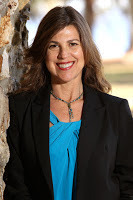 Susan U. Neal, RN, MBA, MHS: Susan’s mission is to improve the health of the body of Christ. She has her RN and MBA degrees, as well as a master’s in health science. She is a CERTIFIED HEALTH AND WELLNESS COACHwith the American Association of Christian Counselors. She published five books, the Selah award winner 7 STEPS TO GET OFF SUGAR AND CARBOHYDRATES, CHRISTIAN STUDY GUIDE FOR 7 STEPS TO GET OFF SUGAR AND CARBOHYDRATES, HEALTHY LIVING JOURNAL, SCRIPTURE YOGAa #1 Amazon best-selling yoga book, and YOGA FOR BEGINNERSwhich ranked #3. She published two sets of Christian Yoga Card Decks and two Christian Yoga DVDs that are available at CHRISTINAYOGA.COM. Her digital product HOW TO PREVENT, IMPROVE, AND REVERSE ALZHEIMER’S AND DEMENTIA is a great resource. To learn more about Susan visit her website SUSANUNEAL.COM You can also connect with Susan on FACEBOOK, TWITTER, and INSTAGRAM.
Susan U. Neal, RN, MBA, MHS: Susan’s mission is to improve the health of the body of Christ. She has her RN and MBA degrees, as well as a master’s in health science. She is a CERTIFIED HEALTH AND WELLNESS COACHwith the American Association of Christian Counselors. She published five books, the Selah award winner 7 STEPS TO GET OFF SUGAR AND CARBOHYDRATES, CHRISTIAN STUDY GUIDE FOR 7 STEPS TO GET OFF SUGAR AND CARBOHYDRATES, HEALTHY LIVING JOURNAL, SCRIPTURE YOGAa #1 Amazon best-selling yoga book, and YOGA FOR BEGINNERSwhich ranked #3. She published two sets of Christian Yoga Card Decks and two Christian Yoga DVDs that are available at CHRISTINAYOGA.COM. Her digital product HOW TO PREVENT, IMPROVE, AND REVERSE ALZHEIMER’S AND DEMENTIA is a great resource. To learn more about Susan visit her website SUSANUNEAL.COM You can also connect with Susan on FACEBOOK, TWITTER, and INSTAGRAM.
November 19, 2024
Embracing Gratitude in our Writing During Life’s Surprises

by Kennita "Kay" Williams
Life often leads us down unanticipated paths, filling our journeys with unexpected changes that can leave us anxious or discouraged. During these moments, the challenge to “give thanks in all things” can feel daunting. Yet, by trusting in God’s plan, even when life takes unforeseen turns, we can find purpose, peace, and joy amidst uncertainty. Ephesians 5:20 encourages us: “…giving thanks always for all things to God the Father in the name of our Lord Jesus Christ…” Through gratitude and faith, we allow God to transform the unexpected into blessings that help us grow.
This lesson became profoundly real for our family a few years ago. As a military family, relocations were expected, but we were unprepared when my husband received orders to move from Florida to Alaska. We loved our life in Florida—a close-knit community, familiarity, and a warm climate. Alaska felt like a world apart: remote, with long, cold winters and limited daylight. We were filled with mixed emotions: excitement, anxiety, and uncertainty.
Initially, the move felt overwhelming, yet God called us to trust Him in the unknown. Reflecting on that journey now, I see how it taught us about gratitude in the face of unexpected change. Each challenge became an opportunity to lean into faith, drawing us closer to God and each other. Moments of uncertainty turned into lessons in trust, resilience, and joy, strengthening our family.
If you’re navigating a sudden change, you’re not alone. Here are seven ways to seek God’s plan in the unexpected and practical ways to express gratitude, even when life doesn’t go as planned.
7 Ways a Writer Can Find God’s Plan in Unexpected Change
1. Seek God’s Purpose in the Change
When faced with unexpected situations—relocations, job transitions, or health diagnoses—it’s natural to question why. Instead of letting the “why” consume you, ask, “What can I learn from this?” or “How can God use this experience to grow me?” Trust that God sees the bigger picture and that these detours can lead us closer to His purpose.
For our family, moving to Alaska introduced us to a different pace of life and helped us appreciate God’s creation in new ways. We enjoyed adventures in Alaska’s wilderness, reminding us that God’s purpose often differs from our plans, yet is always for our good.
2. Cultivate a Heart of Gratitude in the Unfamiliar
In times of uncertainty, one powerful response is gratitude. Rather than focusing on discomfort, seek moments where God’s blessings are evident. Gratitude acknowledges hardship while recognizing gifts amid struggle.
In Alaska, we started a family gratitude practice, recording daily blessings. From witnessing the Northern Lights to making new friends, each moment of gratitude brought us closer to God’s peace, helping us shift our focus from worry to appreciation.
3. Pray with an Open Heart
Prayer is our direct line to God, especially during unexpected changes. When facing twists and turns, pray not just for what you want but also for what God may want to show you. Ask for peace, wisdom, and faith to trust His plan.
As a family, we prayed for guidance during our move to Alaska. Those prayers anchored us in His will, providing stability and peace as we navigated the unfamiliar. Opening our hearts in prayer allowed us to release fears and embrace the transition.
4. Find Joy in New Experiences
Change often brings discomfort but also opens doors to new experiences and growth. Embrace opportunities to try new things, meet people, and explore. Sometimes, what we resist brings unexpected joy and reveals parts of God’s plan.
Moving to Alaska offered experiences we never had in Florida. We found joy in dog sledding, hiking, and watching the salmon run. By focusing on new opportunities, we transformed our initial fears into excitement.
5. Focus on Growth Over Comfort
Change often challenges our comfort zones, but God uses these moments to grow us. Growth rarely happens in familiar places; embrace discomfort, knowing God is with you.
For our family, adapting to Alaska’s harsh winters was a challenge but taught us resilience. We learned to appreciate the long summer days and the value of warmth. This discomfort helped us grow in ways that a predictable life never could.
6. Serve Others as a Reflection of God’s Love
In times of change, serving others can shift our focus from our challenges to the needs around us. Acts of kindness remind us of God’s love and help us see that we’re not alone.
In Alaska, we reached out to other military families new to the area, building a support system. Helping others reminded us of God’s presence and the joy of sharing love, even in uncertain times.
7. Reflect on God’s Faithfulness in the Past
Remembering how God has guided us through past challenges can bolster our confidence for the future. Reflect on times when God’s provision saw you through or when difficulties ended with unexpected blessings. These reminders of His faithfulness strengthen our trust in His care.
Looking back on our Alaskan adventure, I see how God led us. What began as a daunting transition became a season rich with growth, resilience, and faith. Our family bonded, our trust in God deepened, and we discovered unforeseen blessings.
Embracing God’s Plan in the Unexpected
Finding God’s plan in unexpected change is a journey of faith, gratitude, and growth. Each time we choose gratitude, pray, and look for His purpose, we step closer to understanding His will. Remember, God is with us, guiding us through every twist. Even when the end result isn’t clear, we can trust that His plan unfolds for our good. Embrace faith, release fear, and allow God to transform the unexpected into a chapter of joy and grace. In times of change, may we find the courage to trust His plan and the gratitude to see His blessings, even in uncertainty.
TWEETABLEEmbracing Gratitude in our Writing During Life's Surprises from Kennita Williams on @EdieMelson (Click to Tweet)
Dr. Kennita “Kay” Williams is a Visionary Leadership Coach, Author, Resilience Expert, and Wellness Advocate. Through her Business/Ministry, Clear Vision, she empowers leaders to navigate challenges, gain clarity, and lead with purpose. Dr. Kay’s mission is to inspire wholeness and healing. She can be contacted at www.clearvisionleader.com.
November 18, 2024
Key Strategies for Networking and Building Author Platform

by Katherine Hutchinson-Hayes @KHutch0767
Growing up, my father owned a construction company and mom was a nurse. However, my parents knew about the fundamentals of investing in real estate. I recall them stressing the importance of location, location, location. In the publishing industry an analogous mantra would be platform, platform, platform
In the ever-evolving world of writing and publishing, knowing the fundamentals is important. Therefore, building a solid platform as an author is essential for success. Whether we’re an aspiring novelist, a seasoned writer, or somewhere in between, networking can open doors to valuable opportunities and connections.
In this blog post, we’ll explore three effective strategies that can help us expand our reach and build meaningful relationships within the literary community. From attending writing events that offer a chance to learn and connect to joining niche groups that foster collaboration and engaging online with fellow writers and industry influencers, these approaches can significantly enhance our author journey and pave the way for future success.
Three Practical Strategies for Writers that Work
Attend Writing Events—Attending writing conferences and events is a powerful way to connect and grow in your craft. These gatherings provide an excellent opportunity to meet like-minded individuals, learn from industry experts, and gain valuable insights into the publishing world. By networking at these events, we can form connections that may lead to future collaborations, referrals, or introductions to influential people in the industry.
Join Niche Writing Groups—Writing groups can provide a safe space for writers to share their work, receive feedback, and learn from each other's experiences. By participating in a writing group, we not only improve our writing skills but also build valuable relationships with other writers. These connections can lead to opportunities for collaboration and support in our writing journey.
Engage Online—Don't underestimate the power of connecting with other authors online. Social media platforms like Twitter, Instagram, and LinkedIn offer a great way to interact with writers worldwide. By engaging with authors we admire, participating in conversations, and sharing our work, we can expand our network and potentially open doors to new opportunities in the publishing industry.
Networking plays a crucial role in marketing our books. By investing time and effort into these top three strategies – attending writing conferences and events, joining writing groups, and connecting with other authors online – we can effectively build our platform as an author and create valuable opportunities for our writing career.
TWEETABLEKey Strategies for Networking and Building Author Platform from @KHutch0767 on @EdieMelson (Click to Tweet)
 Dr. Katherine Hutchinson-Hayes is a review board member and contributor to Inkspirations (an online magazine for Christian writers), and her writing has been published in Guideposts. Her work in art/writing is distinguished by awards, including the New York Mayor’s Contribution to the Arts, Outstanding Resident Artist of Arizona, and the Foundations Awards at the Blue Ridge Mountains Christian Writer’s Conference (2016, 2019, 2021). She is a member of Word Weavers International and serves as an online chapter president and mentor. She belongs to FWA (Florida Writers Association), ACFW (American Christian Fiction Writers), CWoC (Crime Writers of Color),
Dr. Katherine Hutchinson-Hayes is a review board member and contributor to Inkspirations (an online magazine for Christian writers), and her writing has been published in Guideposts. Her work in art/writing is distinguished by awards, including the New York Mayor’s Contribution to the Arts, Outstanding Resident Artist of Arizona, and the Foundations Awards at the Blue Ridge Mountains Christian Writer’s Conference (2016, 2019, 2021). She is a member of Word Weavers International and serves as an online chapter president and mentor. She belongs to FWA (Florida Writers Association), ACFW (American Christian Fiction Writers), CWoC (Crime Writers of Color),AWSA (Advanced Writers and Speakers Association), and AASA (American Association of School Administrators). She serves on the nonprofit organization Submersion 14 board and the 540 Writer’s Community board and is an art instructor for the nonprofit organization Light for the Future. Katherine hosts the podcast Murder, Mystery & Mayhem Laced with Morality. She has authored a Christian Bible study for women and is currently working on the sequel to her first general market thriller novel. Her thriller A Fifth of the Story will debut in February 2024 through Endgame Press.
Katherine flourishes in developmental editing and coaching writers. She has a twenty-year career in education, leadership, and journalism. Katherine freelances as an educational consultant for charter schools, home school programs, and churches. In this role, she has written and edited curriculum, led program development, and helped manage growth facilitating and public relations.
She also works as an editor and book coach through her consulting business. Katherine provides skill, accountability, and professionalism so clients can begin, develop, and finish their writing projects for publication.



